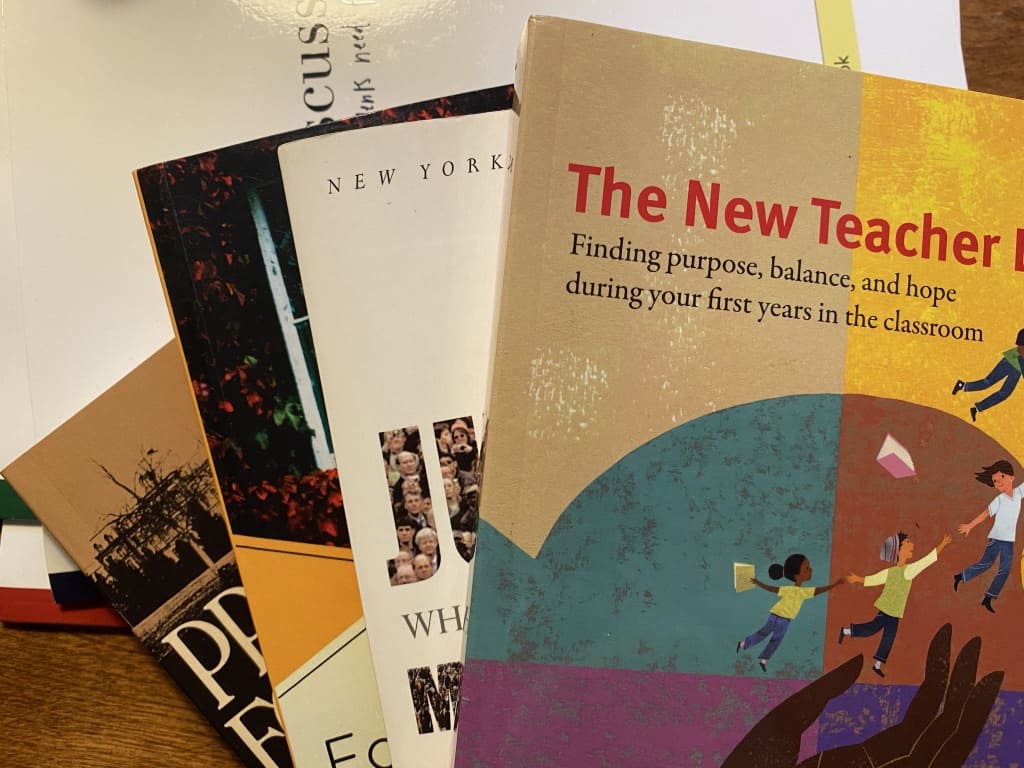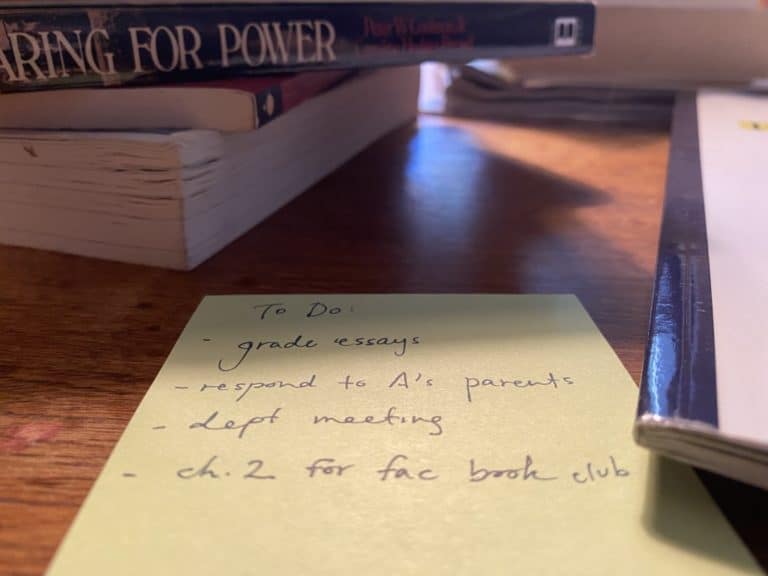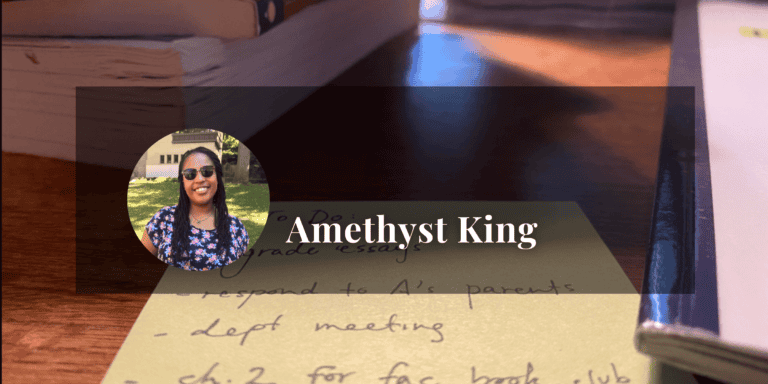Beyond the Syllabus: Editing, Revising, Growing
This week’s Beyond the Syllabus highlights the value of reflecting, maybe just a little bit more than we’re used to, about our practice.
Conversation Tina Chang and Tracy K. Smith at Cave Canem. Sure, Chang and Smith’s conversation is quite long, and sure, it looks like it was probably filmed on an iPhone camera (it’s hard to even tell when this video is from). But dropping in on this intimate conversation between genius friends and close collaborators offers listeners access to fertile and inspiring territory. As they read through and reflect on the letters they’ve sent one another across the years, from early and uncertain phases of their careers to marginal success to prize-winning eras, the two renowned poets share what it means to support, lift, care for, and challenge peers in a journey of ongoing growth. We wholeheartedly recommend listening to this video on a long walk and looking both back and forward with an eye toward personal, and community, growth.
A bit of history James Baldwin’s “A Talk to Teachers.” Danitra Blue’s wise reference to this essay called us back to Baldwin’s 1963 essay, and we think that you, too, should revisit his words today. Baldwin is direct in his talk toward teachers: he begins with the recognition that “we are living through a very dangerous time.” As Blue pointed out in our conversation, Baldwin’s words are equally vital and relevant now as they were in the days of Khruschev and missiles. Baldwin writes specifically about the Black child in America, noting paradoxes in his own experience that resonate with students today – a fact that, even taken alone, should strike and challenge teachers to think critically about needed change and growth in schools and teaching today. But what resonates most profoundly, in this moment, is the call to teach students in a way that will result in their own frustration, their own calls for change in the society and systems of which they are a part; Baldwin’s demand that we allow education to inculcate what he sees its natural end – producing students who will, through critical analysis of their world, demand a change in its state of affairs – is both true to the heart of what all teachers do and the deepest challenge to lean into.
Criticism Anna Weiner, “Is Substack the Media Future We Want?” This January, The New Yorker’s Critic at Large took on Substack, the new platform beloved by founders and thinkers (yours truly included) and skeptically embraced by organizations like Conde Nast (publisher of the magazine). In an era of followership and presidential Twitter accounts, Substack can seem to some the latest, longform iteration of a wheel already spinning out of control: it’s a platform where anyone can share ideas, a platform that even offers access to legal services for its writers who upset audiences. Weiner’s storytelling and analysis of the uses and drawbacks of the platform calls readers (or listeners – we recommend the audio version!) back to the core idea of editing and revising: those classroom values that seem to fade out once students real the “real world” these days. We recommend the piece for the way it complicates the false binary of authenticity and revision, calling attention to the space we must take not only to have and find good ideas, but also to understand that they – and we – might have a better way to say, do, be in our professional practice.






